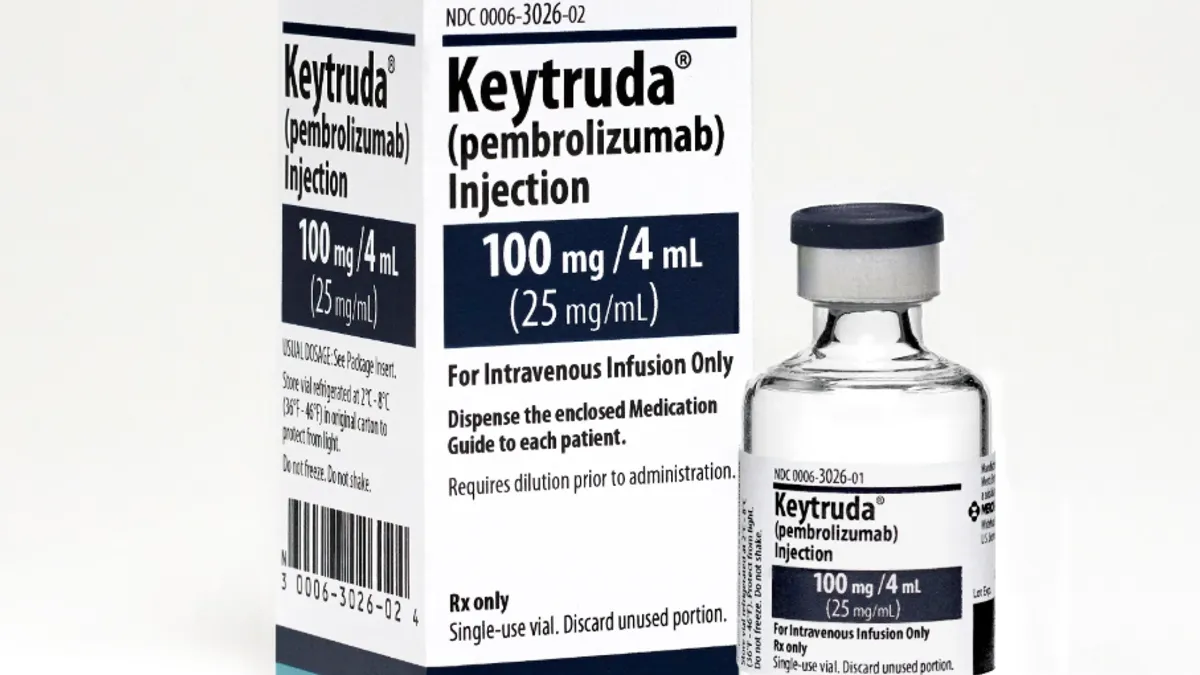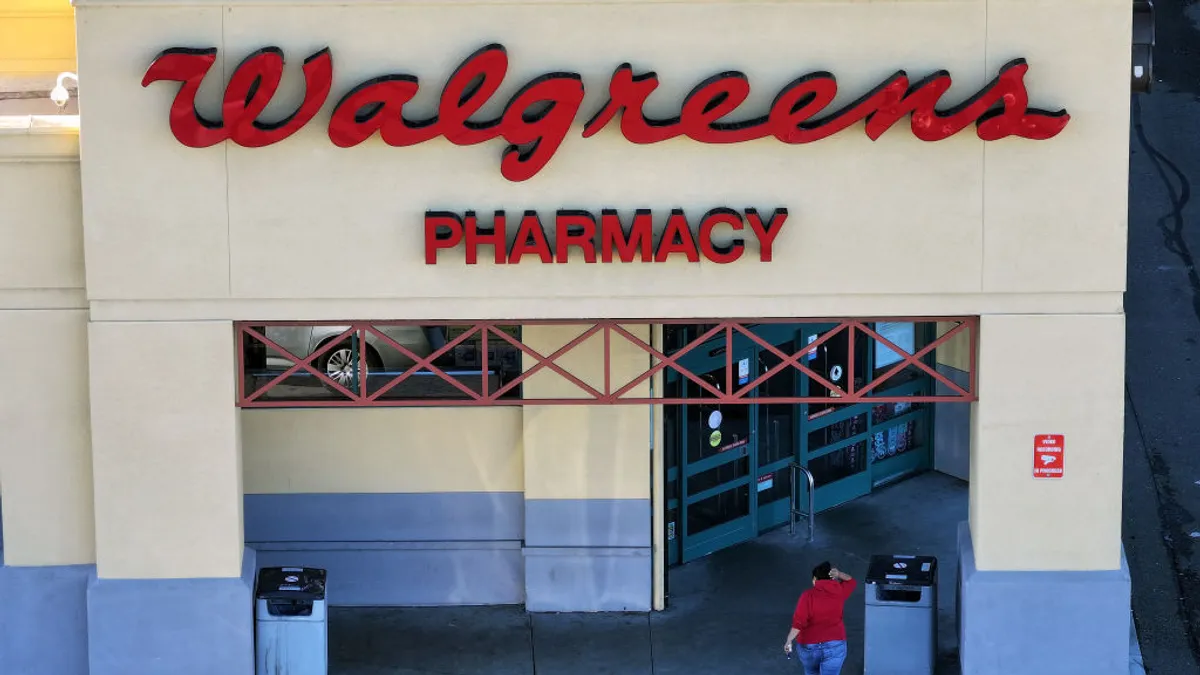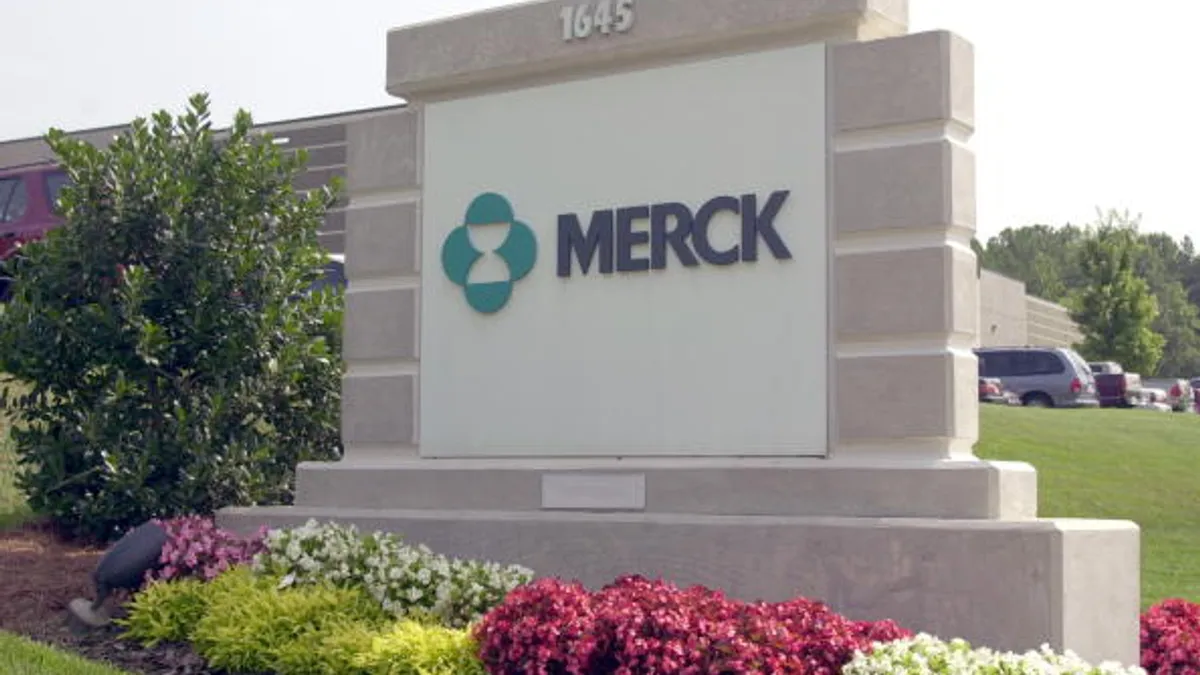Amazon Care Expands Reach
Trend Watch: COVID-19 Forces Healthtech Innovations from Robots to Partnerships
 Amazon.com Inc. has rolled out its internal Amazon Care program as a workplace benefit to employers across the country, along with all its U.S. employees beyond its Washington base. Amazon is looking to partner directly with employers, not health plans. An Amazon spokesperson reported that the company is “in discussions with a number of companies" about the service. The expansion follows Amazon Care’s recent commitment to a new coalition of healthcare providers and aims to make the home a more acceptable — and permanent — site for care, including telehealth and remote patient monitoring. Moving Health Home has an action plan to “change the way policymakers think about the home as a site of clinical service." Its other founding members include Intermountain Healthcare, Ascension, Landmark Health, Signify Health, Dispatch Health, and Elara Caring.
Amazon.com Inc. has rolled out its internal Amazon Care program as a workplace benefit to employers across the country, along with all its U.S. employees beyond its Washington base. Amazon is looking to partner directly with employers, not health plans. An Amazon spokesperson reported that the company is “in discussions with a number of companies" about the service. The expansion follows Amazon Care’s recent commitment to a new coalition of healthcare providers and aims to make the home a more acceptable — and permanent — site for care, including telehealth and remote patient monitoring. Moving Health Home has an action plan to “change the way policymakers think about the home as a site of clinical service." Its other founding members include Intermountain Healthcare, Ascension, Landmark Health, Signify Health, Dispatch Health, and Elara Caring.
Amazon Care offers virtual medical consultations with clinicians as well as in-person follow-up visits for company employees and their dependents.
The Amazon Care app, available for iOS and Android, provides live chats with a nurse or doctor via in-app messaging or video. The program, which pledges to connect employees with a clinician in seconds, day or night, also includes an in-person component for at-home patient visits for things like routine blood draws or tests.
With this development, Amazon has the potential to grow the reach of its app-based messaging, video, and in-person care options to millions of people.
DoorDash Delivers COVID-19 PCR Test Kits
DoorDash, the on-demand local logistics platform, has begun same-day delivery of COVID-19 PCR test collection kits across the United States through partnerships with digital health companies Vault Health and Everlywell. Consumers will now be able to access two COVID-19 home collection kits that received FDA Emergency Use Authorization via on-demand delivery from DoorDash’s DashMart locations across the nation.
The Vault Health-powered COVID-19 Saliva Test Kit or Everlywell COVID-19 Test Home Collection Kit DTC will be available in 12 DashMart locations across the United States, including Baltimore, Chicago, Cleveland, Dallas, Denver, Minneapolis, and Phoenix, with more cities rolling out in the coming months for same-day delivery through the DoorDash marketplace app.
The test is available on DoorDash for $119 and may be eligible for reimbursement with healthcare insurance.
Thermo Fisher Advances COVID-19 Testing
 Thermo Fisher Scientific and Artificial, developers of flexible automation software, have announced a strategic technology collaboration to develop an integrated and comprehensive software automation platform for Thermo Fisher’s standardized COVID-19 Testing Platform. The integration will result in increased testing throughput and support global healthcare initiatives.
Thermo Fisher Scientific and Artificial, developers of flexible automation software, have announced a strategic technology collaboration to develop an integrated and comprehensive software automation platform for Thermo Fisher’s standardized COVID-19 Testing Platform. The integration will result in increased testing throughput and support global healthcare initiatives.
As part of the collaboration, Artificial will provide access to its aLab Suite software, designed to seamlessly integrate with Thermo Scientific Momentum Workflow software and robotics hardware. This will form part of the COVID-19 testing platform that will enable laboratories to quickly upscale COVID-19 testing volumes to help reduce the spread of the disease and restore economies and communities. The aLab Suite software facilitates the dynamic scheduling of protocol runs with batch optimizations to maximize the number of tests run. In addition, manual system set-up steps associated with Momentum process execution can be coordinated using aLab digital assistants to reduce the need for user input. Furthermore, the use of aLab assistant’s digital twin of a COVID-19 testing system to guide lab technicians on where, when, and how to load system consumables will reduce errors associated with manual tasks, ensuring sample safety and integrity and increasing system productivity.
As part of the partnership, Thermo Fisher Scientific will use its extensive experience across life sciences to provide feedback on aLab Suite functionalities and capabilities to contribute to future product requirements and system specifications.
Earlier, Thermo Fisher Scientific launched its Applied Biosystems TaqPath COVID–19 HT Kit that is compatible with the highly automated Amplitude platform. The high-throughput solution enables clinical and public health laboratories to efficiently test up to 8,000 COVID-19 samples a day with fewer staffing requirements and a reliable supply of kits, reagents, and consumables.
The Amplitude platform is a molecular diagnostic system that allows labs to increase their COVID-19 testing capacity by combining Thermo Fisher’s extraction and real-time PCR instruments with liquid handling products from Tecan Group. The system leverages a high-throughput version of Thermo Fisher’s TaqPath COVID-19 CE-IVD RT-PCR Kit, which received a CE-IVD Mark in March 2020.
The platform also received Interim Order Authorization from Health Canada in January 2022. Thermo Fisher has secured a contract with a large provincial authority in Canada for Amplitude systems to help fight the pandemic. Thermo Fisher now has capacity to produce more than 20 million tests per week. One more addition to the Thermo Scientific arsenal against COVID is the AerosolSense Sampler, a new surveillance solution designed to deliver fast and highly reliable insight into the presence of in-air pathogens, including SARS-CoV-2.
Thermo Scientific says this is the next step in providing institutions with highly reliable information to help keep their employees and the public safe. The AerosolSense Sampler is an in-air pathogen surveillance solution, which collects representative aerosol samples of ambient air and traps in-air pathogens on a collection substrate. The sample can be readily analyzed through subsequent laboratory testing using polymerase chain reaction (PCR) methodology. Confirming the presence of pathogens like SARS-CoV-2 in a space during a known time interval enables decision- makers in hospitals and other indoor facilities to take actions to protect their employees and provide the public with confidence.
Solution Helps Employers Identify Employees’ Social Determinants of Health
Technology firm Kumanu and ProMedica, a nonprofit integrated health and well-being organization, are joining up to launch an employer-focused solution, Resourceful.
Powered by Kumanu’s PurposeCloud platform, Resourceful supports employers by addressing unrecognized social determinants of health (SDOH) issues that can have a profound impact on employees’ quality of life and work.
SDOH are social and economic factors that are often root causes of employee health issues, lost productivity, and reduced engagement. SDOH directly impacts almost one-third of all working Americans, according to a national survey conducted by The Harris Poll on behalf of ProMedica and Kumanu in December 2020.
The ProMedica/Harris Poll survey revealed that 24% of full-time workers in the United States had experienced food insecurity issues and 20% of respondents were worried about stable housing, and 27% said they were experiencing childcare challenges. Employers have lacked practical solutions to assess these unrecognized risk factors and, more importantly, meaningful solutions to address them.
Resourceful is a customizable platform designed for employers to de-stigmatize these issues and fill critical SDOH gaps unmet by traditional employer benefits and wellness solutions. Resourceful identifies risk factors in an employer’s workforce and helps activate people with purpose and connects them with resources available at work, or in their community, confidentially. Resourceful can strengthen individuals’ resilience to be better able to bring their best selves to work. Employers benefit when employees’ emotional well-being and essential needs are being addressed.
Uber Health Expands Rx Delivery With ScriptDrop Deal
 Uber Health is partnering with e-prescription startup ScriptDrop in a deal expanding the ride-hailing giant’s prescription delivery footprint from a few cities to 37 U.S. states.
Uber Health is partnering with e-prescription startup ScriptDrop in a deal expanding the ride-hailing giant’s prescription delivery footprint from a few cities to 37 U.S. states.
Uber first forayed into medication delivery in several metro areas in August through a deal with digital delivery marketplace NimbleRx, as the pandemic caused a surge in patient demand for the service.
With this latest deal, Uber’s hundreds of thousands of drivers will be accessible to pharmacies using ScriptDrop, a third-party tech platform connecting patients and pharmacies with couriers nationwide, which will pay Uber for the cost of each delivery.
Uber’s main thrust in the healthcare sector is non-emergency medical transportation, and it has netted some 1,500 partners, including major health systems and payers, since launching in the space three years ago.
ScriptDrop integrates with a pharmacy’s software system to provide same-day shipping medication delivery options, and also has a consumer-facing portal for drop-offs.
Uber and ScriptDrop have additional plans for near-term expansion.
Chatbot Shows Promise with Substance use disorder
 The Journal of Medical Internet Research (JMIR), a peer-reviewed medical journal covering eHealth, published the results of a study that explored substance use disorder interventions via mobile apps.
The Journal of Medical Internet Research (JMIR), a peer-reviewed medical journal covering eHealth, published the results of a study that explored substance use disorder interventions via mobile apps.
Woebot Health, a pioneer in the development and delivery of fast-acting digital therapeutics for mental health, partnered with addiction expert and principal Stanford investigator Judith Prochaska, Ph.D., MPH, professor in the Department of Medicine, Stanford University and the Stanford Prevention Research Center. Funded by the National Institute on Drug Abuse, “A Therapeutic Relational Agent for Reducing Problematic Substance Use (Woebot): Development and Usability Study" was one of the first studies to explore substance use disorder interventions via mobile apps.
The study adapted Woebot — a therapeutic relational agent that leverages artificial intelligence and conversational UX — for the treatment of substance use disorders.
Study participants were 101 U.S. individuals who screened positive for problematic substance use without major health contraindications. The average age of the group was 36.8 years of age, with 75.2% female. Most (68.3%) identified alcohol as their primary problematic substance, and 72.3% reported a lifetime mental illness. Nearly all participants (98%) were sheltering in place at study start as a result of COVID-19. The Woebot intervention was accessed via participants’ smartphones for eight weeks.
“Following the intervention, Woebot was associated with significant reductions in problematic substance use; Woebot proved feasible in delivering engaging, acceptable behavior change tools and with providing support to adults concerned about their use of alcohol or drugs," Dr. Prochaska reported. “Study participants’ use of Woebot was impressive, averaging about 75 messages a week, and their substance use occasions were reduced by 30% during the study, cravings decreased by 50%, while confidence to resist urges to use a substance increased 36%. Study participants also reported a 21% reduction in symptoms of depression and a 23% reduction in anxiety symptoms." (PV)

















